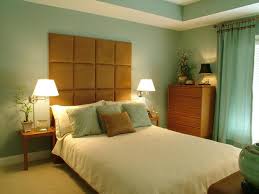
How to Feng Shui Your Moving Experience
By Budget Trucks|September 15, 2014
Feng Shui is an ancient Chinese art of placement and practice of optimising your living or work space to promote the flow of “chi” or your life force. It has been practiced in Asia for thousands of years and is something that many people and even large successful corporations wouldn’t be without. Often times, one might be interested in redesigning their home using Feng Shui practices, but it is hard to start. Moving is a perfect opportunity to start with Feng Shui and utilise this amazing practice for zen, organisation and good vibes for your new home.
Where to Start with Feng Shui?
Planning out a Feng Shui process can and should begin before you move, and you can implement some practices when searching for your new home. Some things to look for when house hunting include:
Remove the Clutter Before You Move
The next place to being with Feng Shui is when you are preparing to move. Get rid of all your clutter first. Not only will this help you out since you won’t have to pack it, unpack it, and find a place for it in your new home, but clutter is bad for Feng Shui. Too much clutter blocks the flow of chi and it also clutters your mind and prevents you from remembering things or thinking clearly. The second point about clutter and Feng Shui is that items in your home can become clutter if you don’t really need them. When you keep only the things that you have a strong connections with, this also helps to improve the level of energy and flow of chi in your home.
Cleaning Your New Home
In addition to a good cleaning and dusting, space clearing is also used to help start fresh in a new home. Space clearing is a new age practice added to modern Feng Shui and if you are open to it, this is a great way to clear away the old “memories” in your new home. When you are setting up your new home, make it easy to clean and keep it clutter free. Less clutter and fewer things also mean less to clean.
Designing with Feng Shui in Mind
When you begin to arrange your furniture and design the rooms in your new home, you can do it with Feng Shui in mind. Here are some of the main areas to focus on:
Main Entry: We already discussed a few major design elements you should look for when deciding on a home. The entry way to your home is very important in Feng Shui because it absorbs the energy into your home. Now, we will focus on some of the decorative design elements for your front door and entry way. Your front door should be strong and the colour should be chosen by you depending on the directional location of the door. Your front door way should open freely without squeaking or creaking. Do not put a mirror facing your entry way. It pushes away all the good energy that tries to enter your house. Lastly, your welcome mat or area rug in your entrance way should be carefully considered. If you think about it, you are going to be stepping on this daily and everyone who comes in and leaves your home will be stepping on it or over it. It should be a design that is ok for stepping on, not your name (never the business name of a business welcome mat), or an image that you wouldn’t want to step on.
Bedroom: Your bedroom is the most important room in the house. It should be treated with respect and always kept clean and clutter free. Good Feng Shui in your bedroom will lead to harmony in your relationships and should be a place where you can rest and relax. Feng Shui tips for the bedroom include soft lighting, symmetry of design, and make sure not to place a mirror opposite your bed. Using “passion colours” like red and pink can help ignite the romance in your bedroom, if that is one of your goals, utilise those colours. If you have a desk or other reminders of work in your bedroom, use a folding screen to block them out. Keep electronics out of your bedroom. If you must have a television in your bedroom, then use the folding screen to block it when not watching it.
General Feng Shui Tips:
Where to Start with Feng Shui?
Planning out a Feng Shui process can and should begin before you move, and you can implement some practices when searching for your new home. Some things to look for when house hunting include:
- Make sure the sink is not opposite the oven or stove in your kitchen. The two opposing elements facing each other can cause family turmoil and arguments.
- Your main entry way and door way are very important for Feng Shui. Design elements to look for in an entry way include no stairway or wall close to the front door and if you have a two story home, the 2nd floor bathroom should not be over the front door or main entrance. Also, the front door should not directly open up to the back door or window.
- When you walk into a home, the first thing you see should not be a bathroom or a closet.
- Don’t choose a home with a back sloping hill. Classic Feng Shui always has a sturdy wall, such as trees or a hill sloping upward for “support” behind your home.
Remove the Clutter Before You Move
The next place to being with Feng Shui is when you are preparing to move. Get rid of all your clutter first. Not only will this help you out since you won’t have to pack it, unpack it, and find a place for it in your new home, but clutter is bad for Feng Shui. Too much clutter blocks the flow of chi and it also clutters your mind and prevents you from remembering things or thinking clearly. The second point about clutter and Feng Shui is that items in your home can become clutter if you don’t really need them. When you keep only the things that you have a strong connections with, this also helps to improve the level of energy and flow of chi in your home.
Cleaning Your New Home
In addition to a good cleaning and dusting, space clearing is also used to help start fresh in a new home. Space clearing is a new age practice added to modern Feng Shui and if you are open to it, this is a great way to clear away the old “memories” in your new home. When you are setting up your new home, make it easy to clean and keep it clutter free. Less clutter and fewer things also mean less to clean.
Designing with Feng Shui in Mind
When you begin to arrange your furniture and design the rooms in your new home, you can do it with Feng Shui in mind. Here are some of the main areas to focus on:
Main Entry: We already discussed a few major design elements you should look for when deciding on a home. The entry way to your home is very important in Feng Shui because it absorbs the energy into your home. Now, we will focus on some of the decorative design elements for your front door and entry way. Your front door should be strong and the colour should be chosen by you depending on the directional location of the door. Your front door way should open freely without squeaking or creaking. Do not put a mirror facing your entry way. It pushes away all the good energy that tries to enter your house. Lastly, your welcome mat or area rug in your entrance way should be carefully considered. If you think about it, you are going to be stepping on this daily and everyone who comes in and leaves your home will be stepping on it or over it. It should be a design that is ok for stepping on, not your name (never the business name of a business welcome mat), or an image that you wouldn’t want to step on.
Bedroom: Your bedroom is the most important room in the house. It should be treated with respect and always kept clean and clutter free. Good Feng Shui in your bedroom will lead to harmony in your relationships and should be a place where you can rest and relax. Feng Shui tips for the bedroom include soft lighting, symmetry of design, and make sure not to place a mirror opposite your bed. Using “passion colours” like red and pink can help ignite the romance in your bedroom, if that is one of your goals, utilise those colours. If you have a desk or other reminders of work in your bedroom, use a folding screen to block them out. Keep electronics out of your bedroom. If you must have a television in your bedroom, then use the folding screen to block it when not watching it.
General Feng Shui Tips:
- Avoid sharp corners.
- Add plants.
- Don’t keep broken things.
- Develop a regular cleaning routine and keep your home clean and clutter free always.
- Follow the bagua map to learn about the 9 quadrants of your home and which elements can be placed in each quadrant to help you achieve your goals in those areas.



